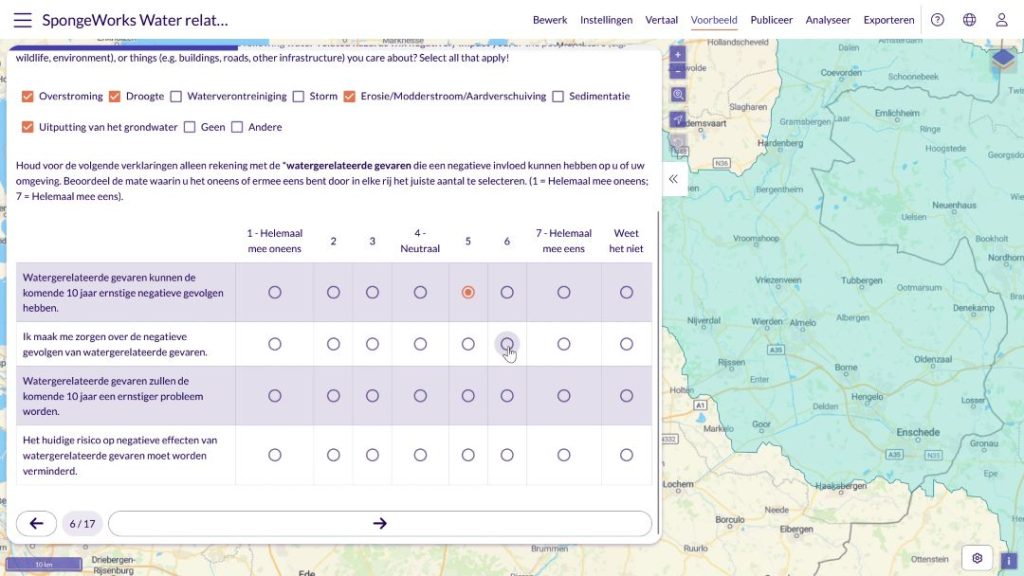SpongeWorks aims to address floods, droughts and biodiversity decline by advancing new approaches for enhancing the water retention capacity of landscapes in Europe.
Christian Albert
SpongeWorks Coordinator, Leibniz University Hannover
SpongeWorks is an EU-funded project tackling the growing risks of floods and droughts intensified by climate change. By testing and scaling Sponge Measures, the project strengthens soil, groundwater, and surface water systems to improve water retention and resilience. Working with local stakeholders, SpongeWorks develops landscape-level strategies that enhance water resilience and deliver wide-ranging environmental and social benefits.

SpongeWorks in numbers
Your voice matters in building climate resilience!
If you are a resident of the Pineios (Greece), Lèze Basin (France), or Vecht Basin (Netherlands/Germany), we invite you to share your experiences with extreme weather events and contribute your local knowledge to shaping a resilient future for your community.


